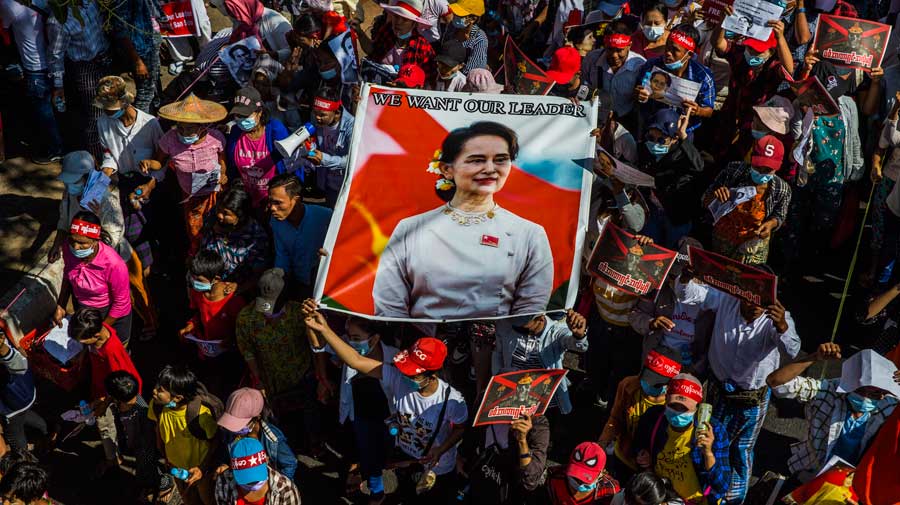Security forces in Myanmar opened fire to disperse protesters at a power plant on Sunday and armoured vehicles rolled into major cities as the new army rulers faced a ninth day of anti-coup demonstrations that saw hundreds of thousands on the streets.
Soldiers were deployed to power plants in the northern state of Kachin, leading to a confrontation with demonstrators, some of who said they believed the army intended to cut off the electricity.
The security forces fired to disperse protesters outside one plant in Kachin’s state capital Myitkyina, footage broadcast live on Facebook showed, although it was not clear if they were using rubber bullets or live fire.
As evening fell, armoured vehicles appeared in the commercial capital of Yangon, Myitkyina and Sittwe, the capital of Rakhine state, live footage broadcast online by local media showed, the first large-scale rollout of such vehicles across the country since the Feburary 1 coup.
The US embassy in Myanmar urged American citizens to “shelter in place”, citing reports of the military movements in Yangon. It also warned there was a possibility of a telecom interruptions overnight between 1am and 9am.
As well as the mass protests across Myanmar, the country’s military rulers were faced with a strike by government workers, part of a civil disobedience movement to protest against the coup that deposed the civilian government led by Aung San Suu Kyi.
Trains in parts of the country stopped running after staff refused to go to work, local media reported, while the military deployed soldiers to power plants where they were confronted by angry crowds.
The junta ordered civil servants to go back to work, threatening action. The army has been carrying out nightly mass arrests and on Saturday gave itself sweeping powers to detain people and search private property.
But hundreds of railway workers joined demonstrations in Yangon on Sunday, even as police went to their housing compound on the outskirts of the city to order them back to work. The police were forced to leave after angry crowds gathered, according to a live broadcast by Myanmar Now.
Richard Horsey, a Myanmar-based analyst with the International Crisis Group, said the work of many government departments had effectively ground to a halt.
“This has the potential to also affect vital functions, the military can replace engineers and doctors, but not power grid controllers and central bankers,” he said.
Hundreds of thousands of people protested across the nation after a fearful night as residents formed patrols and the army rolled back laws protecting freedoms.
Students marched through downtown Yangon, the biggest city, wearing white and carrying placards demanding the release of ousted leader Suu Kyi, who has been in detention since the coup and charged with importing walkie-talkies.
The government and army could not be reached for comment.










